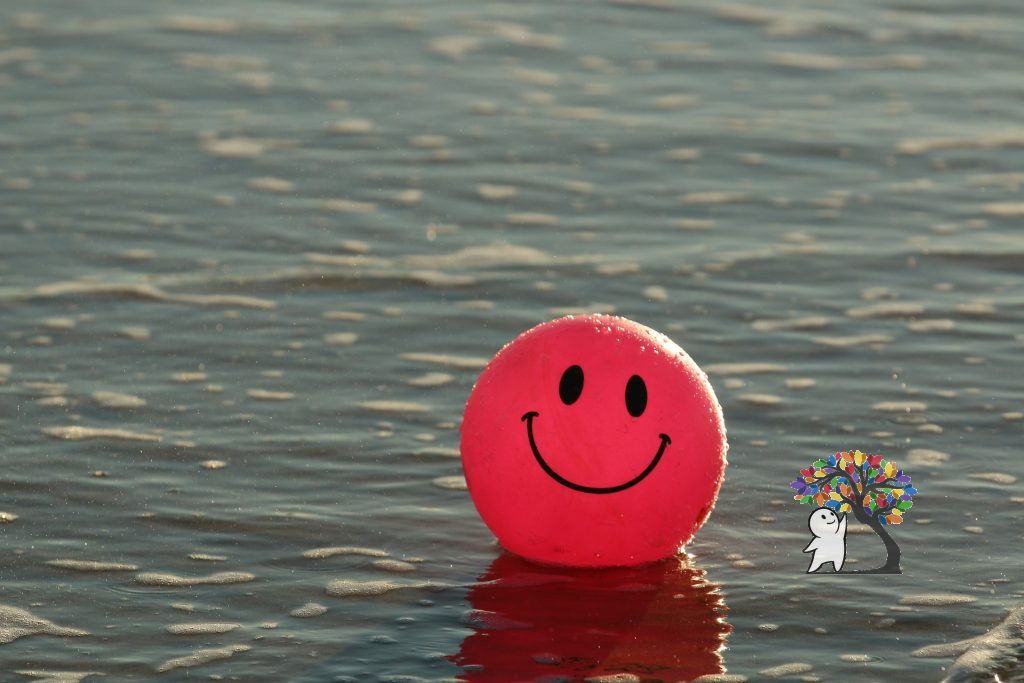7 Habits Of Depressed People

Disclaimer: This article is for educational purposes only, not a substitute for professional diagnosis.
Psych2goers, do you know what is known as the “common cold” of psychiatry? Yes, you guessed it, it’s depression. It is because of the frequency of its diagnosis. It is important to know that depression is not simply about “feeling down”.
It’s common knowledge that a human being can survive anything, as long as there is an end in sight. But the “funny” thing about depression, it seems that you are lost in a dense forest, in the darkest hour of the night, you are so far off from the forest trail that you don’t even know from which direction the sun rises anymore.
Psych2goers, now, let’s delve into the habits that depressed people may have:
- Difficulty in being socially involved

You return to your hometown during the school holiday. You notice that your mother has become a recluse. She doesn’t go to regular gatherings with the residential committee like she used to do, and when you try to talk to her, she replies to you with a monosyllable answer. When you invite her to go to the beach with you, she refuses. She does not want to leave the house at all.
Do you know, one common pattern of people who fall into depression is when they avoid social isolation?
Depression causes a person to have a strong urge to withdraw from one’s friends and family members. Humans are naturally social. Regular social engagement with other people is ultimately good for our physical, emotional, and psychological health. Social withdrawal is actually the exact opposite that a person needs. When a person withdraws from loved ones, one will feel even worse and this amplifies the stress response of the brain (Soong & Nazario, 2021).
2. Not bothering to keep up good hygiene

Your best friend has just broken off with her significant other. You come to her house on one weekend to chill and you notice that she does not bother to keep up good hygiene. Her house is in a complete mess, she does not brush her teeth, her hair is very unkempt, and when you ask her did she shower, she answers, “No. Why do I need to shower? What’s the point?”
Psych2goers, have you ever felt so lazy to shower, especially when it is snowing heavily outside? The snow is falling, it is becoming colder, you are only having online classes at home, so you find no need to shower on that particular day. In contrast to depressed people, they may experience some form of struggle with basic hygiene tasks such as brushing their teeth, showering, washing their hands, doing laundry, or combing their hair. People who are depressed may describe their depression as “a constant gray cloud”, or “a heavy weight which makes it nearly impossible to even do simple daily tasks”. They struggle to keep up good hygiene even when they know they should (Ferguson & Legg, 2019).
3. Focus on negative memories

You wake up one morning with a feeling of dread. It feels so painful as you keep dwelling on an argument that you have with your father and how he had abused you physically and emotionally when you came home for the holidays. Your mind keeps replaying the scene, your mother is sobbing hysterically in one corner pleading to your father to stop, while you are getting kicked and beaten repeatedly.
People with depression would have negative emotions and exhibit pessimistic tendencies. It is very crucial to distinguish depression from sadness or bereavement that one experiences after the passing of a loved one or other major life events. When one is depressed, it is not often related to a specific event and it can happen even without any apparent reason (Ahmad, 2019). Depressed people often perceive the world through a depressive schemata which refer to negative bias which affect information processing in a manner that the content of interpretation and thoughts is immature, absolute, rigid, and maintain negative thoughts about the self in relation to the world (Beck, 1976).
4. See themselves as victims

It is the busy season in your office. You have not had a day off for almost a month, partly because of the busy season and partly because of your own choice. You plan to go hiking and catch the early morning sunrise on your day off. Finally it is your day off but it is raining heavily outside. You spend the first three hours of your day off ruminating on how you always have “bad luck”, and that the world is against you. “Why does this always happen to me?” you ask yourself.
Depression and victim mentality can come hand in hand. While the former is a mental illness that cannot be chosen by anyone, the latter is a mindset that a person may or may not adopt when one has depression. A psychiatrist, Dr. Srinivas Dannaram, MD, stated that victim mentality is defined as “a way of looking at life’s adverse events from a helpless perspective.” People with this kind of mindset blames other people for everything that happens to them. They believe that the circumstances are not in their control, and instead they shift the blame to their significant other, family members, colleagues, or friends. They think life is against them, they are defensive when someone tries to offer helpful feedback, and they feel stuck in the rut and approach things with a negative attitude.
5. Cry for no reason at any time

It is almost one year after the death of your parents. You have a sleepover at your younger sister’s apartment for her birthday. You and your sister watch a comedy show on the television, out of nowhere, she bursts into uncontrollable tears.
“What’s wrong?” you ask her, full of concern.
“I…don’t…know…why…am…I…crying…for…no…reason…?” she answers you in between her sobs.
Psych2goers, have you ever wept after reading a sad scene in your favourite fiction book? Or perhaps you have cried while attending the funeral of one of your close family members? Or maybe you find yourself shedding tears while watching your daughter’s graduation ceremony? All of these are valid reasons for the stream of tears on your face. Emotional crying is actually a uniquely human behaviour (Pierre, 2018).
But, on the flipside, have you ever felt a sudden burst of melancholic emotions out of the blue, with no reason at all? One minute you are vacuuming your house, and the next minute you sob inconsolably.
There are multiple reasons as to why a person cries without an apparent reason. One of them is perhaps the person is experiencing depression. Depressed people have sadness that they find hard to shake off, that may linger for a prolonged period of time, and they may cry more than usual or without an apparent reason (Stephens & Zoppi, 2020).
6. Withdraw from things that were earlier enjoyable

“Son, come on out, we are going to hike your favourite place. Get yourself ready,” you are half-shouting from outside of your son’s door. You receive no reply. So you go inside his room, only to find he is staring expressionless onto the ceiling. You coax him to join you for a hike, but he replies with a muted “No, I don’t feel like it.”
Have you ever felt that nothing really matters anymore? You feel like nothing is enjoyable to you. According to a clinical psychologist, Dr. Ellen Hendriksen (2020), if your answer is “Yes”, there is a high chance that you are having anhedonia. Anhedonia is when you neither “want” nor “like” your previously enjoyable activity. You do not feel the motivation and you do not feel any joy in things that you so often love. It’s when an avid baker refuses to enter the kitchen to bake some fresh cookies, the photographer who lets the camera collect dust on the shelf, or a basketball fan who doesn’t bat an eyelid when her team wins. Your favourite things all become one giant “meh~~~”.
7. Involved in substance abuse

It is the second month after the separation of your parents. Your mother is having her fourth bottle of alcohol. She lies on the couch, tears streaming down her cheeks, while she is mumbling incoherent words.
Psych2goers, have you ever seen anyone drown their sorrows away by drinking alcohol? Depressed people tend to get involved in binge drinking to make themselves feel better.
Now two questions arise, does alcohol abuse lead to depression, or are depressed people more inclined to alcohol abuse? Actually both are possible. During the early phase of drinking, alcohol acts as a stimulant, in which the dopamine level increases thus activating the reward center in the brain. This makes you feel better. When the brain detects certain things giving it pleasure, alcohol will rewire the brain chemistry in a way which makes the drinker craves more alcohol. Gradually, the person becomes addicted to alcohol, one will drink more and more alcohol until a point when there is a permanent damage to the brain’s neurobiology. Apart from that, when a person drinks alcohol too much, GABA pathways can be overstimulated, causing extreme sedation of the central nervous system, leading to alcohol toxicity and overdose (Banerjee, 2014).
Final thoughts
Psych2goers, do you relate to any of the habits stated above? Do you feel that you have this heavy weight of depression cloaks over you and breathes into your every being? If you feel that the habits actually interfere with your daily functioning, please don’t hesitate to seek help from qualified mental health professionals.
REFERENCES
Ahmad, S. (2019, September 5). Negative memory bias and depression. Psychology Today. Retrieved October 15, 2021, from https://www.psychologytoday.com/us/blog/balanced/201909/negative-memory-bias-and-depression.
Banerjee, N. (2014, January). Neurotransmitters in alcoholism: A review of neurobiological and genetic studies. Indian journal of human genetics. Retrieved October 15, 2021, from https://www.ncbi.nlm.nih.gov/pmc/articles/PMC4065474/.
Beck, A. T. (1976). Cognitive therapy and the emotional disorders. New York: International Universities Press.
Ferguson, S., &; Legg, T. J. (2019, October 28). Yes, mental illness can impact your hygiene. here’s what you can do about it. Healthline. Retrieved October 15, 2021, from https://www.healthline.com/health/mental-health/mental-illness-can-impact-hygiene.
Hendriksen, E. (2020, September 26). Ellen Hendriksen, ph.D.. Psychology Today. Retrieved October 15, 2021, from https://www.psychologytoday.com/us/contributors/ellen-hendriksen-phd.
Pierre, J. (2018, April 23). Why do we cry? exploring the psychology of emotional tears. Psychology Today. Retrieved October 14, 2021, from https://www.psychologytoday.com/intl/blog/psych-unseen/201804/why-do-we-cry-exploring-the-psychology-emotional-tears.
Soong, J., &; Nazario, B. (2021, July 8). Depression traps: Social withdrawal, rumination, and more. WebMD. Retrieved October 14, 2021, from https://www.webmd.com/depression/features/depression-traps-and-pitfalls.
Stephens, C., &; Zoppi , L. (2020, November 11). Crying for no reason: Getting support, causes, and how to stop crying. Medical News Today. Retrieved October 14, 2021, from https://www.medicalnewstoday.com/articles/crying-for-no-reason.
Thurrott, S. (2021, March 27). Victim mentality: When the world is out to get you. Banner. Retrieved October 15, 2021, from https://www.bannerhealth.com/healthcareblog/better-me/think-the-world-is-out-to-get-you-it-could-be-victim-mentality.




Responses